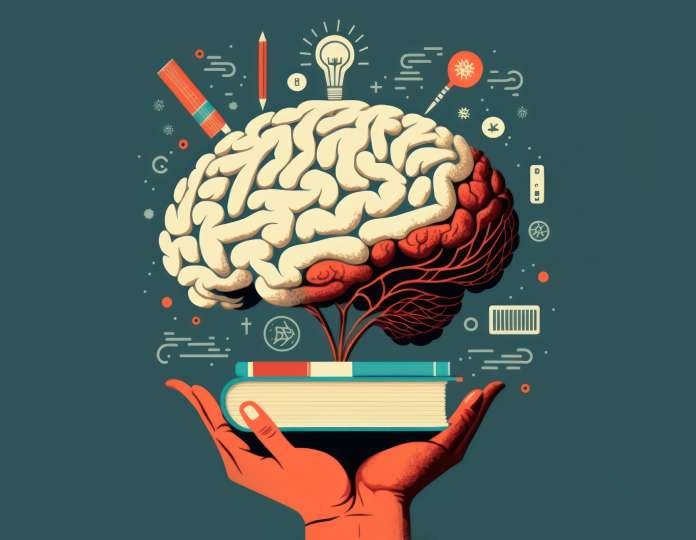Psychology is scientific thinking about the mind and behaviour. It points to get it how individuals think, feel and act from organic, social and mental points of view. Understanding key standards just like the nature-nurture wrangle about, the part of the oblivious, and the thought of free will versus determinism gives understanding into the powers that spur human conduct. Let’s discover the fundamental principles of psychology in this article, and study the complex mechanisms behind human thought and behaviour.
The Role of Nature and Nurture
Both nature (biology and genetics) and nurture (environment and experiences) shape human behaviour and mental processes. Nature provides the basic building blocks, while nurture sculpts and modifies them through learning and adaption to one’s environment. Most characteristics are influenced by both nature and nurture interacting.
Also Read: The Psychology of Consistency
The Complexity of the Human Mind
The human mind is multifaceted and complex. A person’s thoughts, feelings, and behaviour are influenced by a variety of biological, social and environmental factors. Psychological research continues to provide a deeper understanding of how the mind works and develops across the lifespan. However, there are still many mysteries about the mind and human behaviour that remain to be explored.
The History and Origins of Psychology
Early Philosophers:
Some of the earliest known philosophers to study human psychology were the Ancient Greeks, including Plato and Aristotle. They theorized about the relationship between the mind and body, as well as concepts like perception, memory and learning. However, psychology did not emerge as a separate discipline until the late 1800s.

Physiological Research:
In the 17th century, early psychologists focused on relating the physiology of the brain and nervous system to behaviour and the mind. Thomas Willis studied anatomy and pathology of the brain, relating behaviour to the structures of the brain.
The First Psychological Experiments:
The first psychological experiments were conducted by Wilhelm Wundt in Germany in 1879. He focused on studying immediate conscious experience through introspection. His work helped establish psychology as a separate scientific discipline.
Schools of Thought Emerge:
In the early 20th century, different schools of thought emerged in psychology. Behaviourism focuses on observable behaviour. Psychoanalysis focuses on the unconscious mind. Humanism focuses on free will and self-actualization. These schools of thought shaped modern psychology.
Also Read: Importance of Educational Psychology for Teachers
Modern Psychology:
Today, psychology is a broad and varied field. Psychologists study areas like cognition, motivation, emotion, perception, attention, intelligence, mental health, social behaviour and more. Psychology has become an important field that shapes our understanding of the human mind and behaviour.
Major Schools of Thought in Psychology
Psychoanalytic School of Thought:
The psychoanalytic school of thought emphasizes the impact of the oblivious intellect on conduct. According to Sigmund Freud, the author of therapy, the oblivious intellect stores curbed sentiments and traumatic recollections that influence contemplations and practices. Psychoanalysts utilize procedures like dream analysis and free association to bring oblivious material into the conscious mind.
Behaviourist School of Thought:
The behaviourist school of thought focuses on observable behaviour, not internal mental processes. Behaviourists believe that behaviour can be explained by external environmental influences on the individual. Ivan Pavlov demonstrated classical conditioning, in which an unconditioned stimulus is paired with a conditioned stimulus to create a conditioned response. B.F. Skinner expanded on this with his theory of operant conditioning, in which behaviour is modified through the use of reinforcement and punishment.
Humanist School of Thought:
The humanist school of thought emphasizes the role of motivation and free will in human behaviour. Humanists believe that people have an innate motivation to achieve their maximum potential and that this motivation is more important than environmental or unconscious influences. Key proponents like Abraham Maslow and Carl Rogers focused on concepts such as self-actualization, unconditional positive regard, and fully functioning persons. Humanism aims to take a holistic view of human nature and experience.
Also Read: Remembering B.F. Skinner and His Contributions to Psychology

Cognitive School of Thought:
The cognitive school of thought centers on mental forms such as thinking, perceiving, reasoning, and problem-solving. Cognitive psychologists study inner mental processes to understand behaviour and believe that the way individuals think decides how they will carry on. Key concepts include schema, heuristics, and cognitive biases. The cognitive school aims to create an information-processing model of the intellect to get how individuals see, learn, keep in mind, and think.
How Psychologists Study the Mind and Behaviour
Scientific Method:
Psychologists utilize the scientific method to systematically study the mind and behaviour. They make observations about human thoughts, emotions and actions. From these observations, psychologists form hypotheses that can be tested. They then design experiments to test their hypotheses. The results are analysed to determine whether the hypotheses are supported or not. The scientific method allows psychologists to discover principles of human behaviour and gain new insights into the human mind.
Types of Research:
Psychologists use both basic research and applied research. Basic research aims to expand knowledge about human behaviour for its own sake. Applied research aims to solve real-world problems. For example, basic research on learning and memory has led to applied research on effective teaching methods. Psychologists also conduct qualitative, quantitative and mixed-methods research. Qualitative research focuses on describing and understanding human experiences. Quantitative research measures behaviour in a controlled, numerical manner.
Area of Study:
Psychologists specialize in numerous regions of think about. For case, Developmental psychologists consider how individuals develop and alter over the life expectancy. Social psychologists look at how the social environment and intelligence of other individuals impact people. Personality psychologists investigate what makes each interesting. Clinical psychologists evaluate, analyse, and treat mental well-being conditions. Psychologists in all specialities utilize the scientific strategy to grow information and move forward lives.
Applications of Psychology in Everyday Life
Education:
Psychology plays a significant role in the educational system. Educational psychologists apply psychological principles to develop effective teaching methods and improve learning. They work to promote healthy child development and understand how people learn and retain information.
Also Read: How psychology plays an important role in the future of technology?

Mental Health:
Clinical psychologists aim to help people deal with mental health problems and live healthier, happier lives. They diagnose and treat disorders such as depression, anxiety, schizophrenia, and developmental disabilities. Psychologists use talk therapy and other techniques to help their clients overcome difficulties, cope with stress, and function better on a day-to-day basis.
Workplace:
Industrial-organizational psychologists apply psychology to the workplace to improve productivity, health, and well-being. They address the difficulties such as employee selection and development, motivation and job satisfaction. Their goal is to create an environment where employees can achieve their full potential. Techniques like employee surveys, leadership development programs, and team-building exercises are used to help build a successful organization.
Relationship:
Relationship counselling or couples therapy utilizes psychological methods to help partners enhance intimacy, improve communication, resolve conflicts and evaluate the relationship. Psychologists teach skills like active listening, empathy building and compromise to help couples gain insight into their partnership and determine if it can be strengthened or if ending it is the best option.
Also Read: Health Psychology’s Evolution: The Biopsychosocial Model
In summary…
Psychology is the scientific study of the human mind and behaviour. By understanding the basic principle that underlies thought and actions, individuals can gain insight into themselves and others. Knowledge of psychology empowers people to improve their relationships, achieve goals and lead more fulfilling lives. While the subject covers complex topics, the fundamental concepts provide a foundation for appreciating the diversity of human experience. With an open and curious mindset, anyone can start learning the basics of psychology and apply them in practical ways. Though an intricate discipline, its core elements offer useful tools for navigating the joys and challenges of being human.













Leave feedback about this